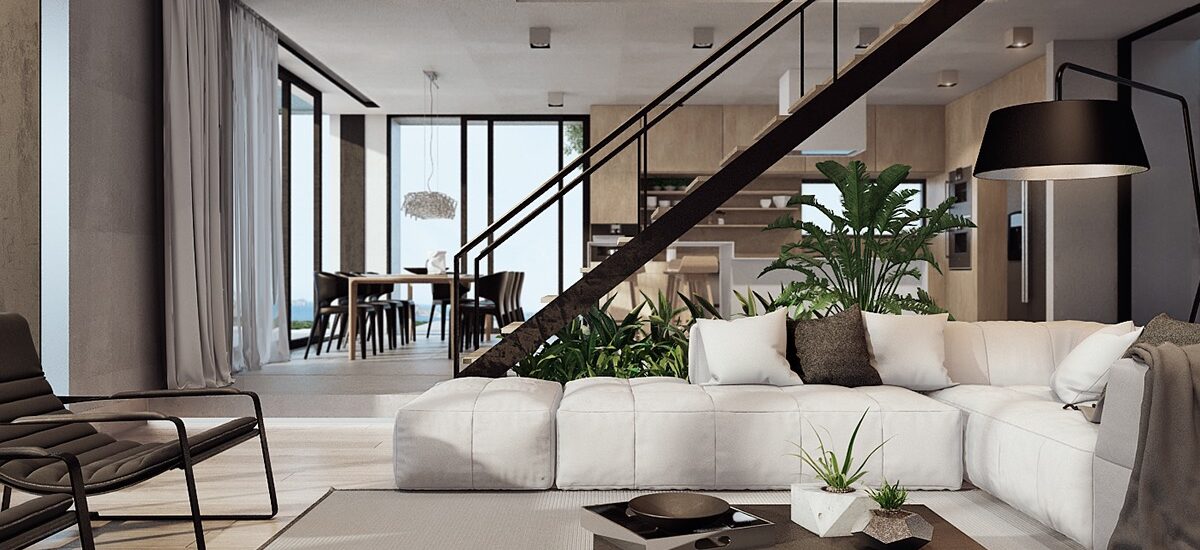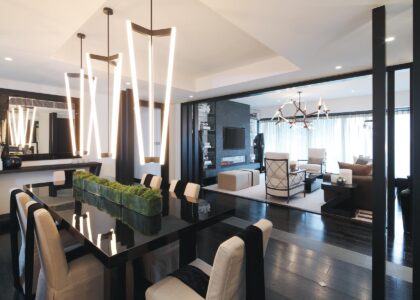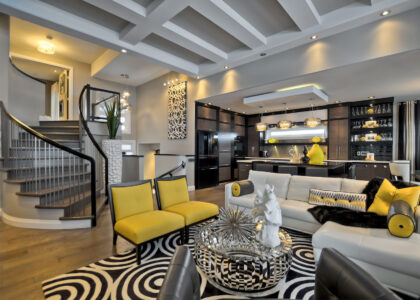Interior design is more than just arranging furniture; it’s about creating environments that enhance our lives and reflect our personalities. As trends evolve and technology advances, innovative interior design has emerged as a powerful means to transform spaces. This article explores some of the most exciting trends and ideas in contemporary interior design that push boundaries and inspire creativity.
1. Sustainable Design
Sustainability has become a cornerstone of innovative interior design. Designers are increasingly focused on eco-friendly materials, energy-efficient solutions, and sustainable practices. This includes using reclaimed wood, recycled materials, and non-toxic paints. Additionally, biophilic design—integrating natural elements into interiors—has gained traction. Incorporating plants, natural light, and organic shapes not only enhances aesthetics but also promotes well-being.
2. Smart Technology Integration
The rise of smart technology has revolutionized how we interact with our living spaces. Innovative interior design now includes seamless integration of smart home devices. From automated lighting and climate control to voice-activated assistants, technology enhances convenience and comfort. Designers are creatively embedding these technologies into the architecture and aesthetics of a space, ensuring they complement the overall design rather than detract from it.
3. Multifunctional Spaces
As urban living spaces shrink, the demand for multifunctional areas has surged. Innovative designs now prioritize versatility, with furniture and layouts that adapt to various needs. Foldable desks, modular seating, and hidden storage solutions maximize utility without sacrificing style. This trend encourages a minimalist approach, where every element serves a purpose, promoting a clutter-free and functional environment.
4. Unique Color Palettes
Color plays a vital role in setting the mood of a space. Innovative designers are moving away from traditional palettes and embracing bold, unexpected combinations. Deep, rich hues paired with vibrant accents can create dramatic effects, while pastel tones can evoke calm and serenity. The use of color blocking, where contrasting colors are applied in sections, adds a modern twist to interior spaces, making them visually engaging and dynamic.
5. Textural Diversity
Incorporating a variety of textures is a hallmark of innovative interior design. Mixing materials such as wood, metal, glass, and textiles can create depth and interest in a room. Designers are experimenting with tactile elements—think velvet cushions, woven rugs, and sleek surfaces—to evoke sensory experiences. This layering of textures not only enhances visual appeal but also invites touch, making spaces feel more inviting and comfortable.
6. Personalized Spaces
Personalization is key to innovative design. Today’s interior designers prioritize the individual needs and tastes of their clients, creating spaces that reflect their lifestyles and stories. This can involve bespoke furniture, curated art collections, and custom color schemes. The goal is to transform a house into a home by infusing it with personal touches that resonate with the inhabitants.
7. Artistic Statement Pieces
Art plays a crucial role in innovative interior design. Statement pieces—be it a large painting, a sculptural installation, or an eye-catching light fixture—can serve as focal points, elevating the entire design. Designers are increasingly collaborating with local artists to source unique works that not only enhance aesthetics but also support the community. Incorporating art into interiors adds character and sparks conversation.
Conclusion
Innovative interior design is an ever-evolving field that blends creativity, technology, and sustainability. By embracing new materials, technologies, and ideas, designers can transform ordinary spaces into extraordinary environments that reflect personal style and improve quality of life. As we look to the future, the possibilities for innovative interior design are limitless, inviting us to rethink how we experience our spaces. Whether through sustainable practices, smart technology, or artistic expressions, the best interior designs inspire, engage, and uplift, making our world a more beautiful place to live.



